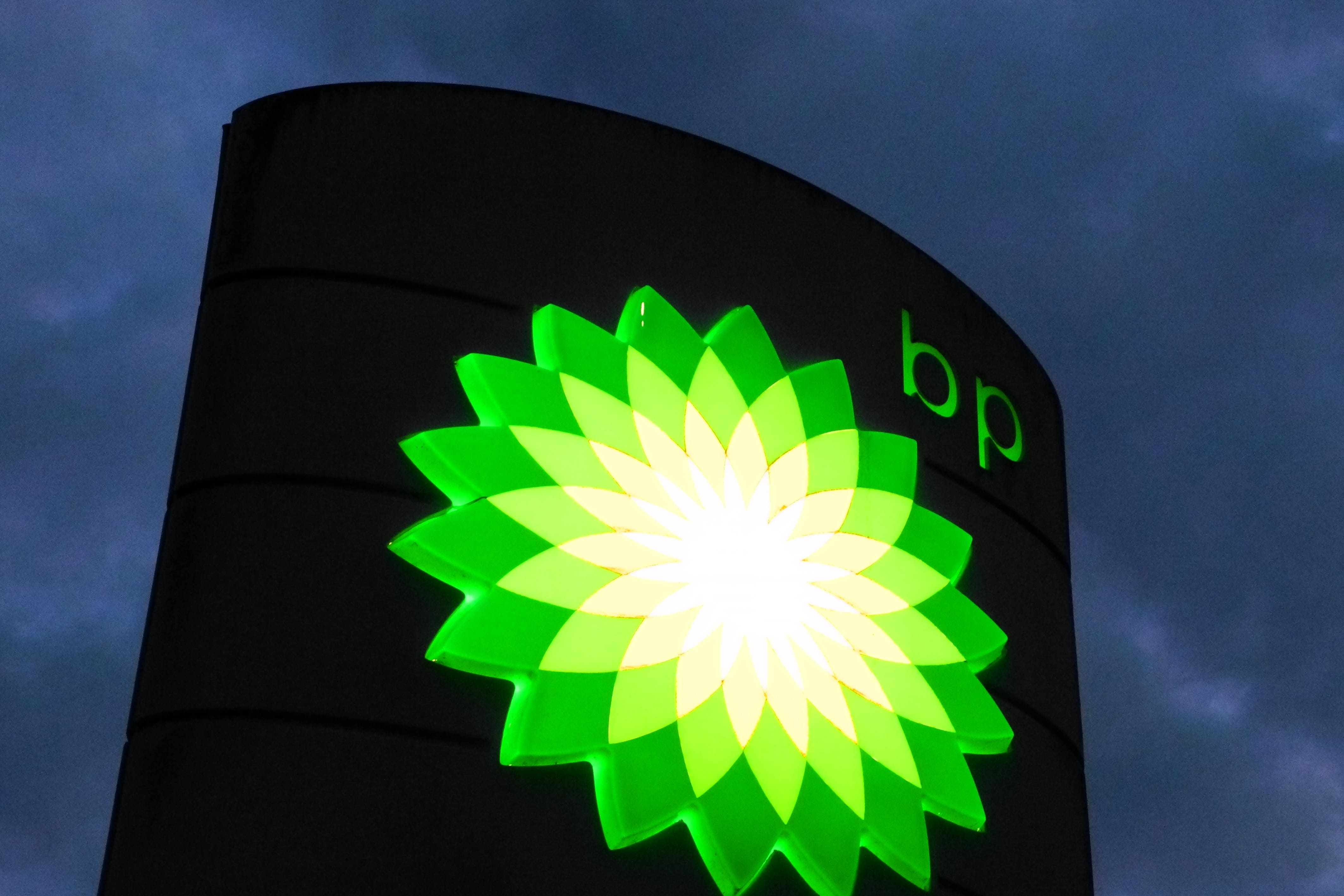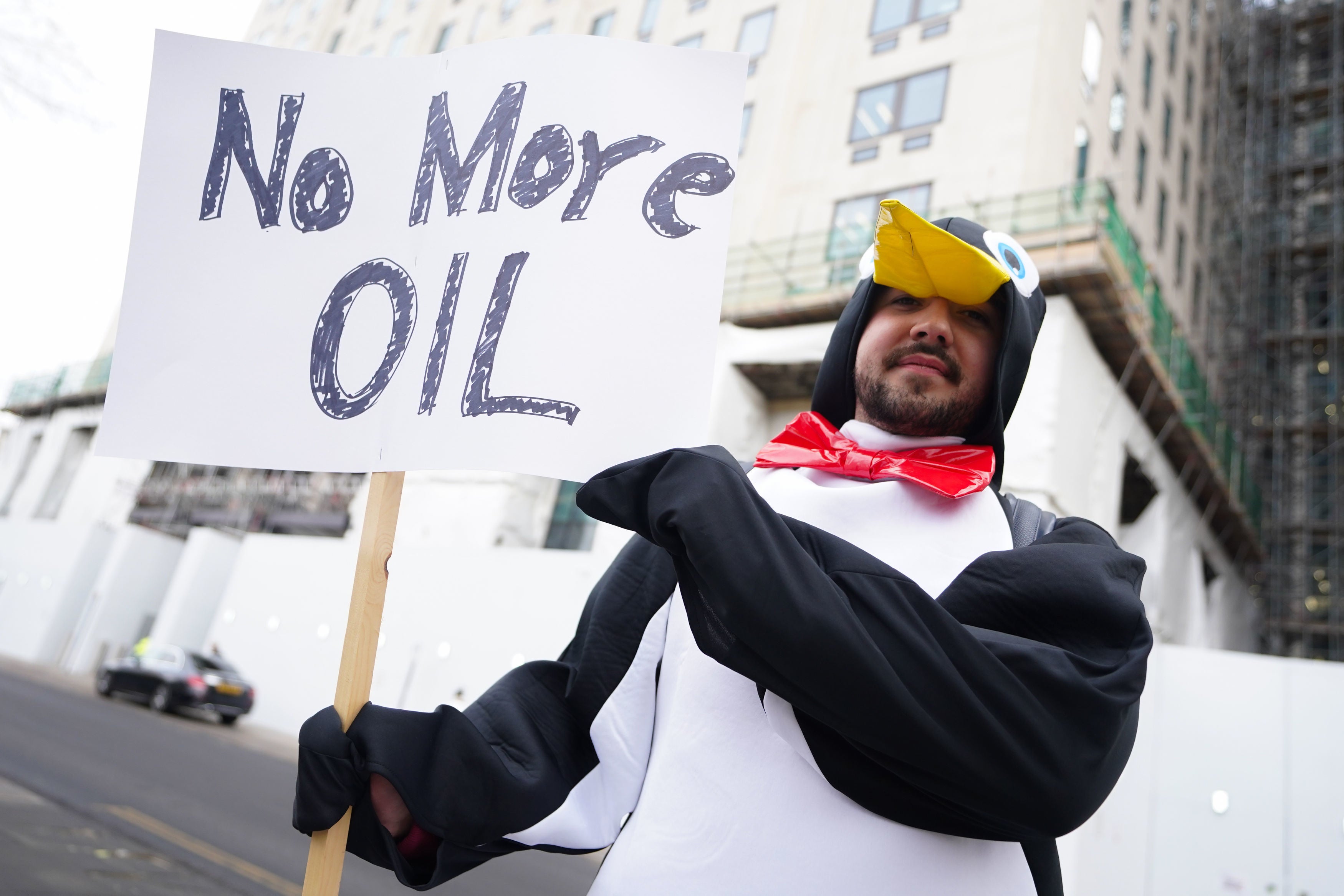BP profits double to record £23bn after spike in oil and gas prices
Friends of the Earth says BP’s profits ‘will be yet more salt in the wound for millions of people who’ve struggled to afford to stay warm and well this winter’
Your support helps us to tell the story
From reproductive rights to climate change to Big Tech, The Independent is on the ground when the story is developing. Whether it's investigating the financials of Elon Musk's pro-Trump PAC or producing our latest documentary, 'The A Word', which shines a light on the American women fighting for reproductive rights, we know how important it is to parse out the facts from the messaging.
At such a critical moment in US history, we need reporters on the ground. Your donation allows us to keep sending journalists to speak to both sides of the story.
The Independent is trusted by Americans across the entire political spectrum. And unlike many other quality news outlets, we choose not to lock Americans out of our reporting and analysis with paywalls. We believe quality journalism should be available to everyone, paid for by those who can afford it.
Your support makes all the difference.BP’s profits more than doubled to £23bn last year amid a spike in oil and gas prices during Russia’s illegal invasion of Ukraine.
The British oil and gas giant posted profits of $27.7bn (£23bn) in 2022, compared with $12.8bn the year before, accounts published on Tuesday showed.
Benard Looney, BP’s chief executive, said the firm’s annual profits were aided by the “lowest production costs in 16 years.”
He added that, “importantly”, BP continues “delivering for our shareholders – with buybacks and a growing dividend.”
“This is exactly what we said we would do and will continue to do – performing while transforming,” he said.
Climate group Friends of the Earth said BP’s profits “will be yet more salt in the wound for millions of people who’ve struggled to afford to stay warm and well this winter”.
The cost of oil gas, already high due to increased demand coming out of the Covid pandemic, soared last year when Russian President Vladimir Putin ordered his troops to invade Ukraine.
Higher prices fed through to increased energy bills, with households in Europe and the UK paying more for their heating and electricity, driving up inflation.
The price of gas, however, has started to come down this year and economists in the UK have predicted that inflation has peaked.
BP is not alone in posting record profits in recent years.
Last week Shell announced that its profits increased by 53 per cent to £68.1bn in 2022, while earnings adjusted for taxes doubled to £32.2bn.
The bumper profits being made by oil and gas giants led to the government introducing a windfall tax aimed at helping people with higher heating and electricity costs.

Calls have been growing in recent days for the government to crack down on what the Labour Party claims is a “loophole” in the windfall tax which allows firms to pay less.
BP said it would invest an additional eight $8bn (£6.6 bn) each in the energy transition, and in oil and gas, as boss Bernard Looney promised to keep affordable energy flowing.
The business said that underlying replacement cost profit – the figure most followed by analysts – had reached $27.7 bn (£23 billion) last year.
The measure was slightly lower in the last three months of the year compared to previous quarters at $4.8 bn (£4 bn).
BP said that the result had been affected by its gas marketing division, which saw below average results after an exceptional third quarter.
The business said it expects the carbon emissions from its oil and gas production will fall by between 20-30 per cent by 2030, when compared to 2019.
Its previous target had been a 35-40 per cent drop in emissions.
Connor Schwartz, a climate campaigner at Friends of the Earth, added: “And with business booming, BP has today revealed its rolling back on its recent climate promises. “It’s clear that heating our homes will continue to cost the Earth in more ways than one.”
The group urged the government to help lower bills and carbon emissions with a nationwide insulation programme and ramp up the production of renewable energy.

“Fairly taxing fossil fuel firms’ mega earnings would help to fund these vital measures,” Mr Schwartz said,
It comes as the business said that its oil and gas production will be around two million barrels of oil equivalent a day in 2030. This is 25 per cent lower than in in 2019, but its previous plan had been to cut production by 40 per cent.
“We need continuing near-term investment into today’s energy system, which depends on oil and gas, to meet today’s demands and to make sure the transition is an orderly one,” Mr Looney said.
“We have high-quality options throughout our portfolio, allowing us to choose only the best.”
He added: “We will prioritise projects where we can deliver quickly, at low cost, using our existing infrastructure, allowing us to minimise additional emissions and maximise both value and our contribution to energy security and affordability.”
Climate campaigning group Greenpeace said BP’s profits were another example of a “fossil fuel giant mining gold out of the vast suffering caused by the climate and energy crisis.”
“What’s worse, their green plans seem to have been strongly undermined by pressure from investors and governments to make even more dirty money out of oil and gas,” Kate Blagojevic, head of climate justice, said.
“This is precisely why we need governments to intervene to change the rules.”
She added: “It’s time to stop drilling and start making polluters, not communities, who did least to cause the problem, pay the price for the climate damage they are causing all around the world.”
Shadow climate secretary Ed Miliband called on the government to bring forward a “proper” windfall tax on energy companies.
The Labour MP said: “It’s yet another day of enormous profits at an energy giant, the windfalls of war, coming out of the pockets of the British people.
“What is outrageous is that as energy giants rake in these sums, Rishi Sunak still refuses to bring in a proper windfall tax.
“This is why people are sick and tired of the way the country is run under the Tories.”
He added: “In just eight weeks time, the government plans to allow the energy price cap to rise to £3,000. Labour would use a proper windfall tax to stop prices going up in April.”
Chancellor Jeremy Hunt increased the amount firms pay in windfall taxes, hiking the levy to 35 per cent in changes that came into effect last month.
He has so far rejected calls to prevent bills rising for all households from April as the government scales back its help for gas and electricity bills.




Join our commenting forum
Join thought-provoking conversations, follow other Independent readers and see their replies
Comments